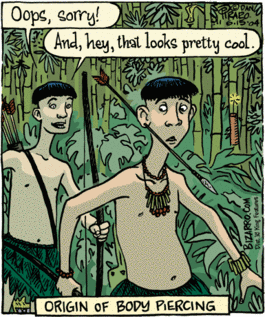Indian students unmasked racial microaggressions
The students’ experiences are what C. Pierce, a Harvard psychiatrist, coined as “racial microaggressions,” defined as the subtle indignities and insults heaped on minorities during everyday exchanges, the demeaning messages sent to people of color by white people.
By Denise Lajimodiere
The students’ experiences are what C. Pierce, a Harvard psychiatrist, coined as “racial microaggressions,” defined as the subtle indignities and insults heaped on minorities during everyday exchanges, the demeaning messages sent to people of color by white people.
These subtle, stunning, often automatic acts of disregard and non-verbal exchanges which are put-downs of minorities by offenders, stem from unconscious attitudes of white superiority. This form of racism, though pervasive, is seldom investigated.
Instances may appear small, banal and trivial, but researchers are beginning to find they assail the mental health of recipients. In and of itself, a microaggression may seem harmless, but the cumulative burden of a lifetime of microaggression can contribute to a corrosive effect on confidence and the lives of Indian people.
Columbia’s G.W. Sue compared these insults to carbon monoxide—“invisible, but potentially lethal.” Constant negative interactions can be a sort of death by a thousand cuts for the victim.
Overt racist acts usually are not socially condoned, which is the reason, Mr. Fool Bear, that Indian students at UND don’t have a long list of reported overt acts of racism on file. Now that blatant public displays of prejudice are frowned upon, more subtle manifestations are getting increased attention from researchers.
Indian students at UND have experienced microassaults: Conscious and intentional actions or slurs, such as using racial epithets or deliberately serving a white person before a person of color in a restaurant. Examples at UND include being yelled at to “Go back to the reservation! Go drink your firewater! If the logo goes so should the Indian programs!”
This theory explains much of the politics in the US today. People know they can't express their prejudice outright, so they've learned how to disguise it. So we hear a lot of coded messages about what people think. "I'm not against blacks running the country," they'll say. "I really believe Obama is a socialist/fascist/communist/Nazi tyrant." Or, "I'm not against brown-skinned immigrants who multiply like rabbits. I just believe in the rule of law."
We hear the same type of dissembling in the Native arena. People will say things like, "I'm not against Indians, I just love my Indian mascot and don't care what you think about it." Or, "I'm not against Indians, I just want to wear this headdress and you can't stop me." It's a form of passive-aggressiveness. Overtly people will agree that racism is wrong, but they'll do everything they can to maintain their race-based power and privilege.
We see these microassaults all the time. In minor stereotypes that don't seem especially racist or harmful. In so-called jokes that we're supposed to let pass. In the hipster "irony" that says, "We're not mocking Indians. We're mocking the people who mock Indians."
Microaggression is a constant
We can apply the microaggression theory to all sorts of things. For instance, to the behavior of Hollywood executives: "I don't have anything against Indians, I just think Johnny Depp or Taylor Lautner can do a better job." Or to the attitudes of creators such as Stephenie Meyer: "I don't have anything against Indians, I just think of them as close-to-nature were-beasts." Dig a little deeper and you'll find the real message: "I don't think Indians can be stars or heroes."
Let's not minimize the harm of microaggression either. Really, this is something we're all familiar with. How often does a friend or loved one say something "small" that cuts you to the quick? Weekly, daily, hourly? It's a near-constant occurrence in many of our lives.
The offenses hurt much more than they should because we know what the offenders really mean. A minor complaint or "joke" or sigh is their way of saying, "You've screwed up again," or, "I'm disappointed with you." It's microaggression in situations where aggression is socially unacceptable.
Anyone who has experienced this kind of microaggression knows it can hurt deeply. The small slights are often the ones we remember longest. They're more intimate and personal than blanket statements such as "all gays are effeminate" or "all Indians are drunks." They stick with us long after we forget what the knockdown fights were about.
For more on the subject, see Native Children Bullied by Stereotypes and Fighting the "Fighting Sioux."
Below: Indians who do clumsy, foolish things...aka a passive-aggressive critique of Indians...aka microaggression.


2 comments:
Same is said true of Whites. Although, they seldom admit it, but there is a flip side to "go back to the rez" which translates to "Go back to Europe, you filthy barbarians!". Although, some specilates that "reverse racism" is or has plaqued public learning institutions, which I cannot say for certain if ethnic clubs or studies are mere acts of "racism"(according to some reactionary white folk). But yeah, I hear it all the time--reverse racism.
~GENO~
There's no "reverse". The quotas policies at some public learning institutions are just plain racism: designed to deny people rights based on their skin color. There's nothing "reactionary" about objecting to such Jim Crow-like policies.
Post a Comment